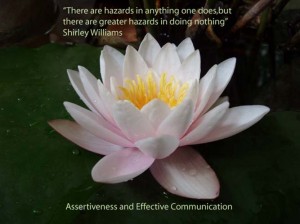
In our society even our youngest of children end up on teams involving sports or other activity. Too often the question we ask is, “How did you do?” or we say, “You did really well today!” If we want to teach our children about teamwork though we may want to change the words we use, and start very early teaching them about teams and how we can accomplish much bigger goals together than we can as just one person.
All of us including children have been on teams. Our most important team is our family. When we teach our children that the family is the most important team we are on, we will be helping them to see things from others point of view, empathy. When they go to school they will start to see relationships as not just about themselves, but also get to feel what others might be feeling. When we take them into the community and there are cleanup projects or feeding the less fortunate, they will begin to understand how together we can make a difference far beyond what we can do as individuals.
What would happen if at home we all made a mess? Do we expect that one person would be responsible for picking up and cleaning the mess? If we as a family work together to get things cleaned up, we are teaching our children that teamwork is an important characteristic to our family. Yes sometimes it takes more time than doing it ourselves, but the lesson of teamwork, empathy, fairness and learning how to share responsibility is a valuable lesson for later in life.

 When difficult situations come up are you willing to speak up? You may ask yourself if you are being embarrassed, bullied, lied to, or having a conflict, will you share your thoughts and feelings honestly with the other person or group? Do you know how to do so effectively and without coming off as aggressive?
When difficult situations come up are you willing to speak up? You may ask yourself if you are being embarrassed, bullied, lied to, or having a conflict, will you share your thoughts and feelings honestly with the other person or group? Do you know how to do so effectively and without coming off as aggressive?